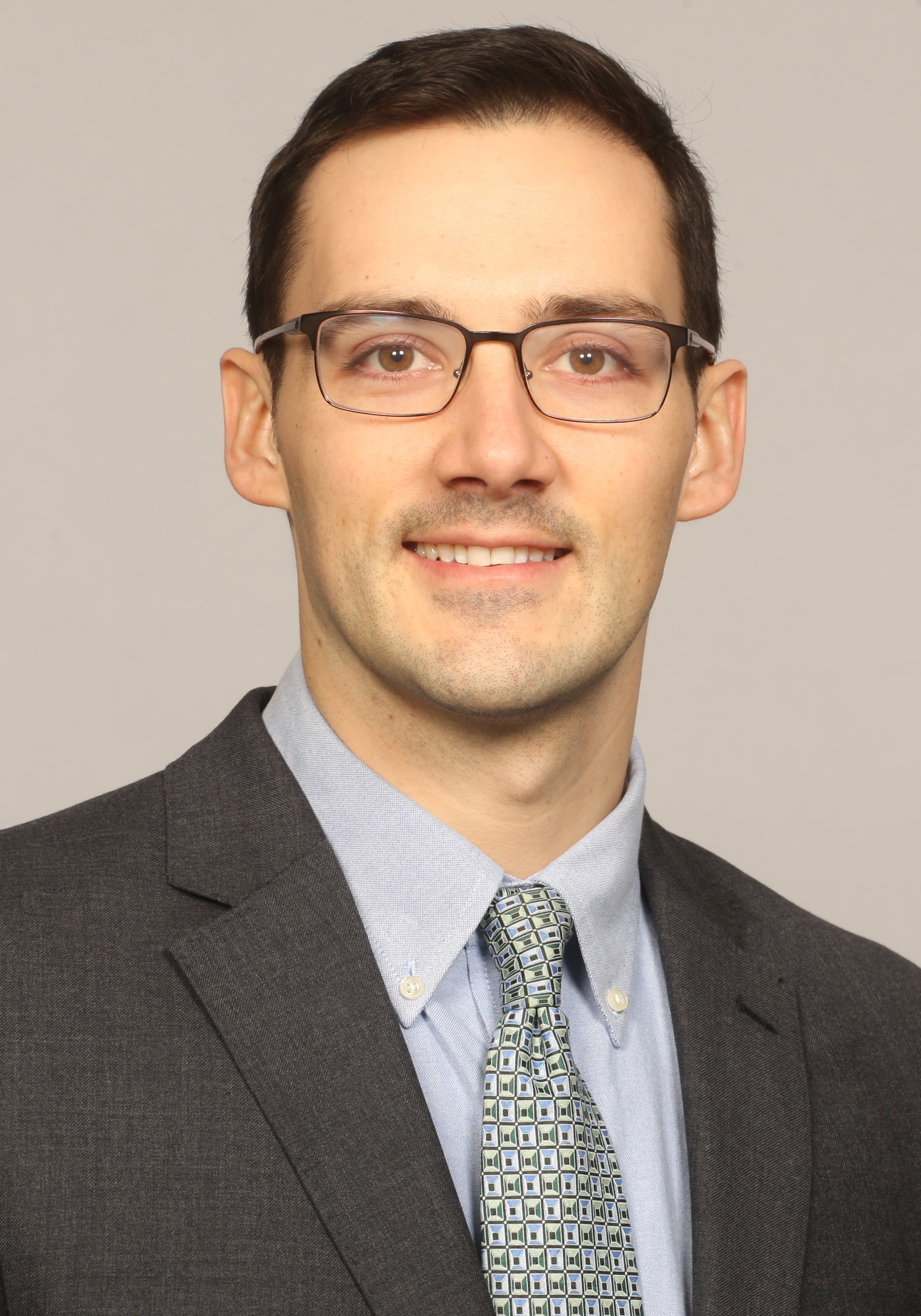EDITOR'S NOTE: In honor of Major League Soccer and the Club's 25th season, Columbus Crew SC is revisiting important moments from the Club's path. Historic match streams can be found at ColumbusCrewSC.com/stream, and more can be seen on the Club's social media channels.
There are those sayings about how "you make your own luck" or "the harder you work, the luckier you get," and for the most part, semantics aside, they typically ring true -- the more effort one puts towards something, the greater the payoff usually is, whether it be in the long-term or not.
But there's always a peculiarity to how certain things come full-circle and the ways in which outside factors play a contributing role.
Take Dante Washington's story with the Crew, for instance.
Now the Director for Columbus Crew SC's Team Strategic Partnerships and Business Development, Washington's path to professional soccer originated out of his playing days at Radford University in Virginia, where as a forward, he set the all-time assists record for men's NCAA Division 1.
"I don’t say it in a bragging fashion. My records will never be broken," he said, having to deal more with the structure and trends of present-day college soccer than anything. But anyway, after graduating in 1992, Washington played on the U.S. Olympic Team as part of the '92 Summer Games, and from there, looked to continue his professional career.
Back then, before the prospects of Major League Soccer, the options were slim: play in domestic indoor leagues or any other league that was still operating, or go abroad as a trialist.
Washington chose the latter.
"I didn’t really want to play indoor because it’s such a different game and I preferred to play outdoor... I remember talking to [a professional indoor team and two non-local outdoor teams] and they said 'we’re interested and would like for you to come out.' When I looked at the salary, I was like 'Oof, that’s not much.' I'm going to end up with less money since they're in another city, even though I’m pursuing my passion, but it isn’t really worth it. I made the decision back then that it wasn’t worth it."
Trials in Holland & Germany didn't pan out, so he came back stateside. From there, Washington was called up to the U.S. player pool ahead of the 1994 World Cup but did not earn a final roster spot.
So, instead of playing at the World Cup, he went to work for it as a member of the organizing committee.
Now, here is where it gets interesting, Washington said.
"So, I come back and I’m working for the World Cup Organizing Committee. In our offices in Fairfax, Virginia, there were three people working for MLS who shared the same office space as we did. So, I saw the behind-the-scenes stuff with MLS as it was being developed," Washington said.
As a bit of background, the promise of establishing a first-division professional soccer league was packaged into the U.S.'s deal of hosting the 1994 World Cup.
"If I remember correctly, I saw some of the early logos. I think I sat down with Dave Dir (who went on to coach him with the Dallas Burn) and went over the initial player questionnaire that they put together to start having a database of players. It was weird to be so involved behind the scenes, while a year before I was trying to be on the team...It was supposed to launch in ’95, but we weren’t ready, so it launched in ’96. All of the guys who are my age or even older were really happy because it was our first shot at something like the NASL, a really big notable league. We were at the beginning of something."
Following the World Cup, Washington had a stint with the Washington Warthogs of the Continental Indoor Soccer League, and was then offered a position at NBC as a logistics coordinator for the 1996 Olympics.
"I was a liaison between any of the people that went to Atlanta for the games working for NBC... All of the on-air talent, producers, Dick Ebersol, the President of NBC. I can remember watching the first game of MLS in a bar on a Saturday after working with some of my coworkers in New York. There was an event, it may have been the draft, that MLS had in New York while I was working. I ran into a bunch of people. I remember talking to Eric Wynalda and him being like “What are you doing, you need to be playing.”
So, just before the Olympics started, Washington laced up again and left his role with NBC to pursue a career in the newly established MLS.
"I guess over time I started getting an itch again... One of my old youth coaches, John [Ellinger], who knew Tom Fitzgerald, the assistant coach in Columbus at the time. He called Fitzgerald and asked if he’d be interested and he said yes."
Washington said he hadn't played a competitive outdoor game since college and that, in general, it had been a while since he played.
Washington played three games in that 1996 season with Columbus before being traded to the Dallas Burn. From an outsider's perspective, it seems like could have easily been another simple notch in the career belt, but after over four seasons with Dallas, Washington came back to Columbus in 2000, scoring a career-high 15 goals en route to an All-Star nod, before eventually helping the Crew lift the Lamar Hunt U.S. Open Cup trophy in 2002.
For the sake of brevity, rest is history as it relates to his playing days (he played two more seasons with Columbus and finished his pro career in Utah).
But just like in '96, the Crew still came calling all those years later and Washington answered, now leading the Club's effort to be a trusted business & sports partner in the community through the game of soccer.
Now, going from a professional playing career, to witnessing behind-the-scenes work of the League's creation, to playing for the Crew, to serving as a TV analyst, to playing a role in the Save The Crew movement, to now working in the Front Office, there are a lot of memories, certainly.
So what stood out to him personally after 25-plus years?
"There probably is a lot," Washington prefaced his answer with.
"Even so, I can go back to before the league started. I think it was ’91 or ’92 when I was with the Olympic team and we played in Dublin, Ohio. That year we played in Dublin, St. Louis, and Lehigh University in Pennsylvania. We may have played somewhere else. But this was the only place that sold out. It had over 10,000 fans. We thought that St. Louis would have sold out there. Nope, 10,000 people in Dublin. When I came back to Columbus in ’96, I had never forgotten the soccer support that’s here in this city.
"Going from Dallas and coming here, I would routinely have people say something to me here in Columbus. Even at the Kroger when I lived in Gahanna, one of the workers recognized me. Just the love and support the fans had given over the many years... The connection the team has had with the community is one thing that’s really sat with me over the years. Even when I came back and did TV and even when I came back now, I’ve been a part of this organization in a number of different ways over the years. I still kind of have the same experience with the fans when I was a player, when I was broadcasting, when I was vocal in the Save the Crew movement or now being a part of the front office. There’s always been this affection that the community has had for us."


